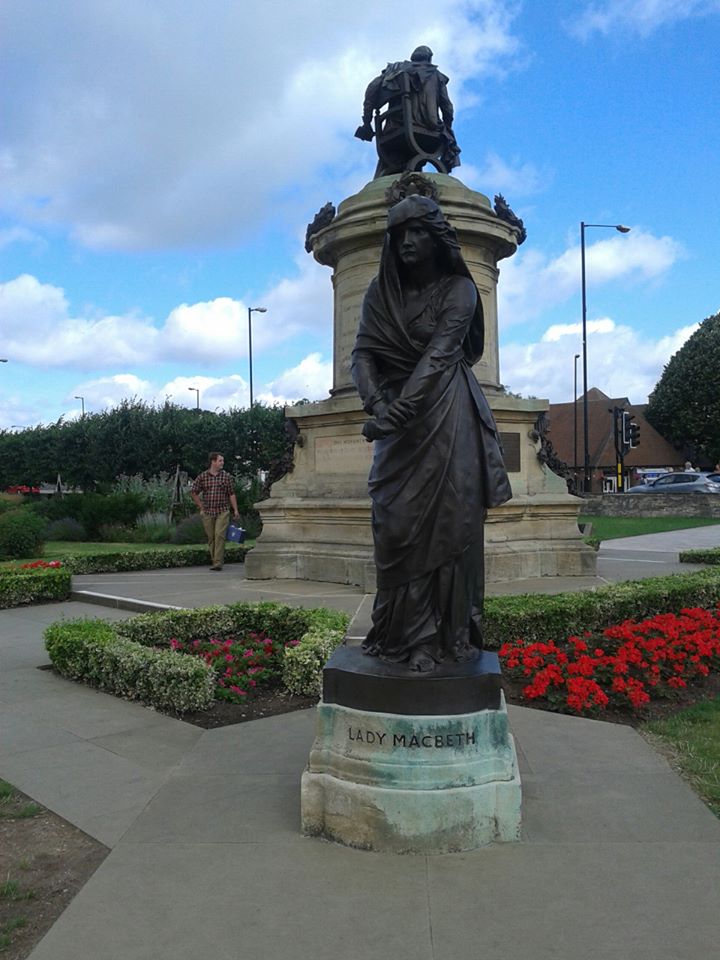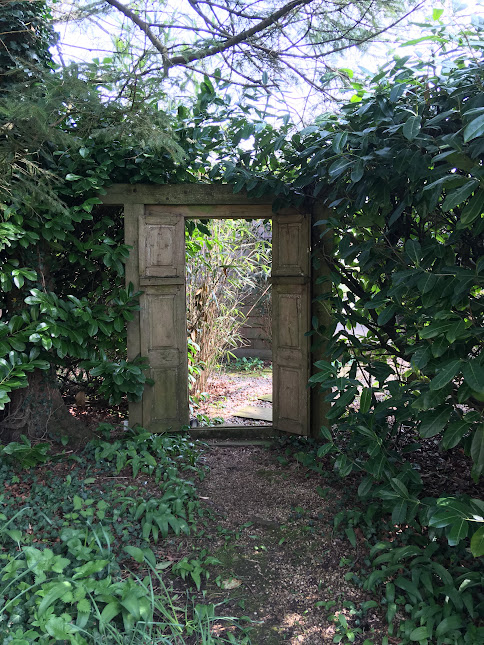This Week’s Bit of String: Debating Lady Macbeth’s villainy
The Year 11s are learning Macbeth for their GCSE in Literature. I help sometimes in the small class with a number of special needs students, who have become impressively engaged in debating who the true villain of the play is. (The appeal for one boy is the “high kill count” in this particular story.)
To delve into the imagery Shakespeare uses—flowers and snakes and whatnot, and perhaps to help get us through the last lesson on a Friday afternoon, the teacher showed a brief video about the Biblical creation story. It was an outrageous little cartoon. God sounded super American; Adam (predictably lily-white and blond) had a slightly less egregious American accent; Eve sounded Eastern European but with strange, digitised diction as if she were a Satnav; and finally (again, sadly predictable) the devil-serpent had a British accent with African tones.

Eek. The makers of the video had also added a whole conversation between Eve and Adam, after the snake tempts her and before she takes the fruit. It was not unlike Macbeth and Lady Macbeth in Act 1, Scene 6, along the lines of: “I think it would be great for us if we ate this fruit.” “What, no way, God said we shouldn’t…” “Come on, pleeeeease?”
It was as if some sect read the the start of Genesis and said, “This account is clearly written by woke amateurs who failed to spell out how fully the blame should fall on women. Let’s fix it.”
I took it as a sign, on that sunny autumn afternoon, that I should really get cracking on the in-depth edits for my own Creation myth.
Work in Progress
Drafted three years ago, The Gospel of Eve is my novel telling events from her point of view. It’s had terrific feedback so far, and I’m terribly fond of it, so much so that it’s sometimes difficult to see what might need improvement.
It helps when I’m reminded why I wrote it in the first place, to explore the story and come up with an alternate voice. More specifically, I had been thinking about how Eve would learn to be a mother with no role models or preceding matriarch, how she would negotiate between guilt and hope, how desperate she’d be to give her children better lives, how not all of them would appreciate that. How she’d have to play matchmaker to her own children, and how that might make her reflect on her own relationship with Adam.

It’s tricky writing about mothering, because it’s such a consuming theme. By writing about Eve as a mum, am I stifling her individuality? Plus, living in prehistoric times it’s not as if she has recognisable hobbies of her own. A favourite book, a group of peers to hang out with. So in addition to firming up the narrative around Eve’s journey as a mother while I edit, I’m also trying to make sure her own voice comes out loud and clear.
Since my only child moved overseas 5 months ago, writing about being a mum is a nice substitute for a lot of the hands-on mothering I once did. Parenting is still a big deal in my life, and really it’s one of my favourite things. I’m glad it consumed me. But now I must pick at the bones that are left and see what comes up, while still juggling work and chores and waking up frequently between midnight and 3 a.m. to check online messages from my kiddo. (Don’t you love time zones?)
Cradle of Civilisation
Millennia later but not far geographically from where Eve’s story takes place, more women’s voices are being heard, as brave people rebel against Iran’s morality police and authorial government. I’m inspired by this as a writer and a human. I loved Rana Rahimpour’s interview with Jon Stewart. Her anecdotes will amaze you.
Cultural aspects of this region should amaze you too. I loved researching evidence of early Middle East civilisations, and learning how they used to store ice in the desert, or irrigate crops with tunnels a bit like underground canals. I ended up using the latter as a fairly pivotal plot point.
Considering how upset some people are that elves and mermaids can be depicted with different colour skin, I’m interested to see how they’d react to the parents of all humanity being casually described as having brown skin. It shouldn’t surprise anyone that humans populating punishingly hot regions and formed, according to legend, of the earth itself, would NOT be lily-white and blond. But people are weird. Gives me another incentive to promote this alternative, though perhaps more accurate version (if “accurate” is a term we can apply to a novel containing angels, demons, talking animals, and 800-year-old people).
So many thoughts and findings I’m eager to share. I’ll just make sure everything’s up to scratch! What challenges have you faced when editing? What challenges would you imagine for the first woman on earth?